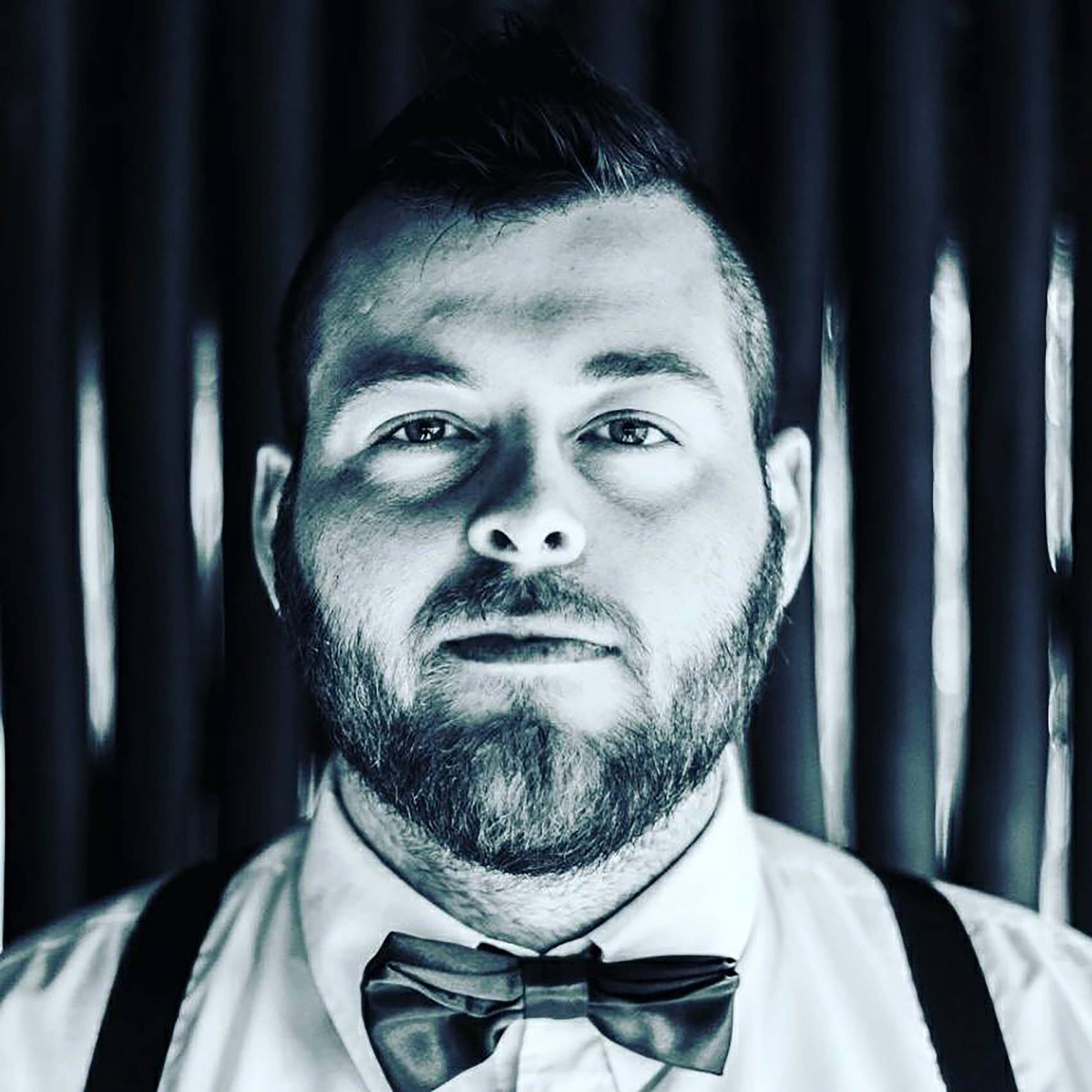As a hiring manager, asking questions like, “What’s the greatest challenge you’ve overcome?” is important to learn about an applicant. But what creative interview questions will help paint a fuller picture of a potential candidate?

Imagine you ask your candidate: “If you were a pizza delivery person, how would you benefit from scissors?” The question changes the conversation. Suddenly, you’ve caught your candidate off-guard.
Traditional interview questions are still necessary, but funny or unexpected questions like the following can provoke a more honest, insightful conversation during your interview.
Funny Interview Questions
1. “How would you solve problems if you were from Mars?”
This question, asked by Amazon, helps you see if your candidate can think outside what‘s traditional or typical. You’ll want your candidate to demonstrate problem-solving ability even under bizarre circumstances.
Her answer can show you whether she can enter a new workplace environment and evaluate it fairly before offering solutions.
For instance, an ideal candidate might say, “If I were on Mars, they’d likely have their problems separate from those on Earth. First, I’d research to determine cause and effect and then offer potential solutions.”
With this answer, your candidate has shown an ability to be thoughtful and analytical when making decisions.
2. “What do you think of garden gnomes?”
This question, asked by Trader Joe’s, is ridiculous. More than anything else, it’s intended to loosen the candidate, see a glimpse of their personality, and gain insight into a cultural fit.
There‘s no correct answer to this question, but if your team likes to be sarcastic with one another, you might want a candidate to say, “If I could get a job as one, then I probably wouldn’t be here today talking to you.”
Ultimately, if your candidate can easily handle this curveball, it shows an impressive ability to react quickly to bizarre circumstances.
3. “Why are manholes round?”
UBS, a Swiss multinational investment bank, asks this sneakily insightful question in Operations interviews.
At first glance, it seems like another funny “loosen the candidate up” question — but, in actuality, it‘s a good indicator of your candidate’s intellect.
An ideal candidate will think the question through and provide a thoughtful answer like this:
“A round maintenance hole cover can’t fall through the round maintenance hole opening. A square cover, on the other hand, could fit diagonally through the opening and fall through.
Additionally, a circular cover fits easily and can be removed easily, without much precision or rotating.”
This answer demonstrates your candidate’s ability to see the necessity of specific solutions and ideally apply those same problem-solving skills to her role.
4. “You’ve been given an elephant. You can’t give it away or sell it. What would you do with the elephant?”
This ConnectWise question helps you better understand your candidate‘s reasoning skills. Of course, there’s no “right” answer to this funny question. Still, it lets you know how your candidate thinks, prioritizes, and problem-solves.
Additionally, it can loosen the candidate up and allow her to show you a more authentic side.
Your candidate might say, “Since I don’t have a place to put an elephant, I’d probably send it on vacation,” or “I would feed it and then ride it to work.”
It‘s important to note you aren’t looking for a specific answer here — you’re determining how your candidate thinks on her feet and handles herself in unexpected situations.
5. “If you were a tree, what kind of tree would you be and why?”
Ask this bizarre Walgreens question to test your candidate‘s creativity. However, ideally, your candidate’s answer will give you insight into her strengths related to the role and what kind of person she is.
Your ideal candidate should say, “I would be an oak tree because I’m strong and dependable.” Of course, it doesn‘t matter what tree she chooses — as long as she uses her answer to show you why she’s a good fit for the position.
6. “If you were a dessert, what would you be?”
The answer to this question can give insight into how candidates see themselves and their ability to think creatively.
Your ideal candidate would explain the reasoning behind their answer. If their answer includes a bit of humor, you can infer the candidate can laugh at themselves and be a good fit within your organization’s culture.
An example of a good answer would be:
“I would be a cheesecake because they are versatile and can be adapted to different tastes depending on the toppings you add.
I consider myself a very creative person who can adapt to different situations or pivot when necessary so the team can reach its goals.”
Creative & Interesting Interview Questions
7. “We finish the interview, and you step outside the office and find a lottery ticket to win $10 million. What would you do?”
This question is fantastic for determining your candidate‘s true motivation in a role. You don’t want to hire someone who only wants the job to make money — you want a candidate who also finds genuine fulfillment in the part.
Since corporations whose employees are engaged perform over 200% better than those without, you must hire a fully engaged performer.
Your ideal candidate will say:
“I’d use the $10 million to travel, donate to charity, and provide for my family. However, I’d still want to work for your company.
I’ve always enjoyed working in marketing, and I think this company greatly emphasizes creativity and storytelling to help brands spread their message. So while I’d love to get $10 million, it wouldn’t change my career goals.”
Ultimately, you‘ll want a candidate who mentions why she’s genuinely interested in the role, regardless of her income.
8. “What’s the color of money?”
This sounds like a trick question — or related to monopoly — but it’s a good gauge for whether your candidate has a well-rounded view of the economy.
PolyOne asks this question to its financial candidates.
While you might expect “green” to be the correct answer, you’ll want your candidate to say:
“It depends on the country.” This type of awareness for the world at large could be critical when evaluating markets and making global financial decisions.
9. “If you had to be shipwrecked on a deserted island, but all your human needs—such as food and water—were taken care of, what two items would you want to have with you?”
This question, asked by companies like Yahoo, encourages the candidate to demonstrate creativity and innovativeness. Additionally, it helps you determine your candidate’s priorities.
For instance, a candidate who mentions needing “a Kindle with unlimited books and my laptop” shows different values from a candidate who says he wants “music and a boat.”
While there‘s no correct answer, you’ll want a candidate who showcases an ability to prioritize and think logically through challenging situations.
For instance, your candidate says:
“I’d like to bring a wifi-enabled laptop with a wind generator to charge the batteries and a lighter. I can do my work and contact friends on my laptop, and I can use the lighter to start fires and keep warm at night.”
10. “Are you a hunter or a gatherer?”
If you aren’t hiring an anthropologist, this might seem like a ridiculous question. But companies like Dell ask this question to gain critical insights into a candidate’s strengths and weaknesses.
You want your candidate to focus her answer on the qualifications of the specific role.
For instance, if you‘re hiring for a content creator role, you’ll want your candidate to say, “I’m a gatherer. I enjoy collecting critical SEO data and insights over time and tailoring my content to reach long-term goals.”
Ultimately, hunters and gatherers are two very different categories of people. This question can help you quickly discern the strengths and weaknesses your candidate will likely display in the role.
11. “If you could only read one book for the rest of your life, what would it be?”
This answer will help you assess the candidate’s priorities and interests.
An example of an ideal answer would be:
“I would read ‘The Altar of My Soul’ by Marta Moreno because her story shows the importance of community and family, two things I hold dear.
Furthermore, I always learn new lessons each time I revisit the book and am always open to learning something new.”
Weird, Unusual, & Random Interview Questions
12. “How much do you charge to wash every window in Seattle?”
While this might seem odd, it‘s practical to ask if you’re trying to determine how well your candidate can problem-solve.
Particularly if you‘re hiring for a client-facing role, you’ll want to see how your candidate handles questions to which she needs to know the answer.
Ideally, your candidate will say something like this — “Well, let’s say Seattle consists of 10,000 city blocks, with 1,000 windows per block. That’s 10 million windows. If I charge $5 per window, I’d make $50 million.”
The answer itself doesn‘t matter. It’s more critical your candidate can apply logical problem-solving skills and remain calm when dealing with challenging or unexpected questions.
13. “Design a spice rack for the blind.”
Your candidate’s answer to this random question shows a lot about how she makes decisions.
For instance, perhaps your candidate wants to interview blind people and do competitive research before deciding. This tells you she’s someone who places value on research and analytics.
Alternatively, your candidate says she’d create braille labels on each shelf. This tells you she trusts her instinct to make fast judgment calls.
Neither answer is wrong — it simply depends on the type of person you need to fill the role.
14. “How many pennies would fit into this room?”
Ipreo asks this question for Product Analyst interviews. A brain teaser like this is an excellent opportunity to see how a candidate can use logic to solve seemingly impossible challenges.
You‘ll want your candidate to say something like this — “I’d need to measure how many pennies fit length-wise, width-wise, and height-wise. Then I’d simply multiply those three numbers.”
This answer demonstrates an ability to use simple math to create formulas for more complex problems.
However, it‘s also impressive if your candidate asks you questions in return. Perhaps she’d say, “Well, will this room still have furniture, or would we remove it?
Also, what’s the volume of the room? Once I have that information, I could do the math based on the volume of a penny.”
Asking questions like these show your candidate thinks outside the box and likes to ask second-level questions before delivering a solution to a problem.
Unique interview questions
15. “If you had a choice between two superpowers, being invisible or flying, which would you choose?”
On the surface, this sounds like a question you heard at sleepaway camp when you were 12. But Forbes found it to indicate potential leadership ability, with 72% of surveyed leaders choosing the ability to fly over being invisible.
If you think about it, this question asks, “Do you prefer to be in the spotlight or more behind the scenes?” Of course, this shouldn‘t be your only question to determine a candidate’s personality and cultural fit.
Still, it’s a good initial indicator of where someone will impact your team most.
16. “What was the last gift you gave someone?”
If your candidate is very stiff and formal, consider loosening her up with a question like this one, asked by Gallup during a Data Analyst interview. It should reveal something about your candidate’s character.
Ideally, it will elicit a warm, emotional response, helping you form a deeper bond with your candidate.
For instance, if your candidate says something like, “My brother loves baseball, so a couple of weeks ago, I bought him tickets to a Red Sox game,” you have information to help you create a connection to your candidate and, ideally create an environment in which she feels more comfortable.
17. “How many square feet of pizza are eaten in the U.S. each year?”
This is a tricky question asked by Goldman Sachs during a Programmer Analyst interview.
The inquiry aims to test your candidate‘s logical reasoning skills. While you don’t need a candidate to get the “right” answer, you’ll want one who remains composed and thoughtful when providing an educated guess.
For instance, your ideal candidate might say, “Well, a pizza is roughly one square foot.
If the average American eats one-third of a pizza and eats pizza three times a month, that would mean 12 square feet a year. Then, multiply that number by 200 million Americans, and you get 2.4 billion square feet.”
18. “If you could compare yourself with any animal, which would it be and why?”
Like the tree question, this question helps you see a candidate’s innovativeness, creativity, and quick-thinking skills. Your candidates should use this question to mention their strengths and highlight their good character.
For instance, an ideal answer might be, “I’d be a horse. Horses are powerful and capable of functioning well both independently and as a part of a team. Additionally, they are often fast learners.”
19. “If you could have dinner with any two famous people, dead or alive, who would you choose?”
An answer would give insight into the qualities the candidate admires most in the people they choose. For example, an excellent answer would be:
“I would have dinner with both Beyonce and Michael Jackson. Aside from being a huge fan of their music, I also admire their dedication to their craft and how committed they are/were to creating the best experience possible for their fans.”
20. “What was your best day at work?”
The ideal candidate would answer in a way that shows their accomplishments, values, and qualities they like in a workplace.
An excellent answer would be:
“My best day at work was when I was awarded Marketer of the Year for my successful digital campaign.
I was proud of my accomplishment, but the highlight was how kind and congratulatory my team was toward me. Working alongside such caring people made me feel valued and happy.”
Interview Takeaways for Any Type of Question
As an employer or hiring manager, you want your interview questions to help you determine a candidate‘s values, strengths, character, and how well they’d fit into your organization.
While many traditional job interview questions are still necessary to determine their experience and skills, it’s good to mix things to get a complete picture of a potential employee.
As a candidate, you should look into unconventional job interview questions to be prepared to think on your feet.
Also, familiarize yourself with the company, its values, and its mission statement to ensure your answers align with the organization.


![Free Guide: 50 Common Interview Questions [Download Now]](https://no-cache.hubspot.com/cta/default/53/aac5dac8-7420-4881-a73f-ee611981ae3a.png)



